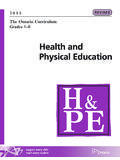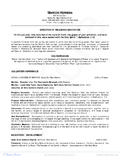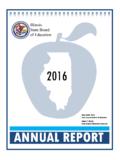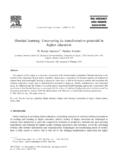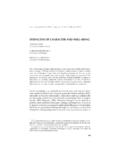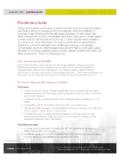Transcription of Ways to use Sign Strengths & Films - Action for …
1 From July 16, 2008 340 ways to Use VIA Character Strengths by Tayyab Rashid & Afroze Anjum University of Pennsylvania 2005, Tayyab Rashid CORE VIRTUE----WISDOM & KNOWLEDGE acquisition and use of knowledge I. Curiosity [interest, novelty-seeking, openness to experience]: Curiosity is taking an interest in all of ongoing experience. It involves actively recognizing and pursuing challenging opportunities and seeking out new knowledge. Curiosity can be broken down into three categories: interest, novelty seeking, and openness to new experience. It is this strength that drives individuals to make discoveries and to explore the boundaries of human knowledge. Movies: October Sky (1999) Am lie (2001-French) 1.
2 Look for jobs in which you are charged with acquiring new information daily, such as journalism, research, teaching, etc. 2. Expand your knowledge in an area of interest through books, journals, magazines, TV, radio or internet, for half an hour, three times a week. 3. Attend a function/lecture/colloquium of a culture that differs from yours. 4. Find a person who shares your area of your interest and learn how he/she increases his/her expertise in that area. 5. Eat food of a different culture, explore its cultural context and become aware of your thoughts. 6. Connect with a person of a different culture and spend at least an hour, twice a month to learn about his/her culture.
3 7. Make a list of unknowns about your favorite topic. 8. Try things that challenge your existing knowledge and skills. 9. Visit at least one new town, state or country yearly. 10. Identify factors which might haven diminished your curiosity in an area and search three new ways to rejuvenate it. 11. Get engaged in more open-ended learning experiences ( , making ice cream to understand physics and chemistry or taking a yoga class to understand different muscle groups). 12. Explore processes of nature, for at least one hour weekly, by being in the woods, park, stream, yard, etc. II. Creativity [Originality, ingenuity]: Creativity is the process of using one s originality to devise novel ways to positively contribute to one s own life or the lives of others.
4 Such originality can range from everyday ingenuity to groundbreaking work that becomes highly recognized. Creative people are able to apply their imaginations in new and surprising ways in order to solve the problems that they encounter. Traditional notions of creativity focus on artistic expression and scientific discovery, but this strength can be applied to any area of life in which obstacles can be addressed imaginatively. Movies: Shine (1996), Amadeus (1984) 1. Create and refine at least one original idea weekly in an area of your interest. 2. Do at least one assignment weekly in a different and creative manner. 3. Write an article, essay, short story, poem, draw, or paint in relation to your passion once a week.
5 4. Offer at least one creative solution to challenges of a sibling or a friend. 5. Compile an original and practical list of solutions or tips that will address common challenges faced by you and your peers. Look for different and creative ways to spend more time at tasks you do best. 6. Brain-storm ideas on a challenging task with your friends. 7. Audition for community theatre or choir. 8. Redesign your room or home. 9. Take a pottery, photography, stained glass, sculpture or painting class. 10. Learn about an exotic and creative art such as Feng-shui or Ikebana. 11. Read about famous creative people and identify what made them unique. 12. Use leftovers (food, stationary and such) to make new products.
6 13. Design a personalized card instead of buying. III. Open-mindedness [judgment, critical thinking]: Open-mindedness is thinking things through and examining them from all sides. It involves a willingness to consider evidence against one s own beliefs, plans, and goals, and to revise them if necessary. Open-minded people faithfully adhere to the standard of considering evidence fairly. This strength counteracts the pervasive my-side bias that prevents many people from considering views other than their own. Movies: No Man s Land (2001-Bosnian) 1. Identify reasons of your last three actions that you are not happy with (not following through with a goal) and brainstorm better alternative ideas for the future.
7 2. Ask a trusted and wise friend to critically appraise your judgment on your last three significant actions. 3. Play devil s advocate on an issue that you have strong opinions about. 4. At least once a week, practice the common themes that exist across races and religions on an important issue. 5. Identify the last three actions for which you did not think your way through. 6. Start an activity and ask yourself -- Why? When? And how? 7. Attend a multi-cultural event and critically evaluate your views during and afterwards. 8. Identify causes of a perceived failure of an activity in the past. Are there any patterns? Take some time to think deeply about how can you improve.
8 9. When deciding about an important issue, write pros and cons and repeat them while taking breaks in between. 10. Mentor someone of a different ethnic or religious background. 11. Monitor if you often find information to confirm your opinions or seek new information to expand your view. 12. When you face the next challenge, first imagine the best and worst scenarios and then decide the most realistic course of Action . IV. Love of learning: Love of learning involves enthusiastically studying new skills, topics, and bodies of knowledge. People with this strength enjoy the cognitive engagement of acquiring new skills or satisfying their curiosity, even when the material benefits of learning may not be immediately available.
9 Love of learning allows people to persist in the face of frustrations and obstacles that arise during the course of education, both formal and informal. Movies: Billy Elliot (2000), A Beautiful Mind (2001) Songs: On the Road to Find Out (Cat Stevens) 1. Deliberately learn five new words, including their meaning and usage, at least twice a week. 2. Visit a new museum every month and write about new things learned. 3. Read a non-fiction book monthly on a topic you find absorbing and engaging. 4. Read and research about a topic by visiting the library at least once a week. Write one page of pragmatic ideas which can advance that field and discuss them with someone. 5.
10 Converse with someone on a topic of mutual interest. 6. Follow an ongoing global event through newspapers, TV or internet. 7. Join a local book club. 8. Attend new gallery/exhibition openings in your area. 9. Read aloud with your loved ones. 10. Arrange a teach-learn date with a friend, learn a skill, and teach what you are best at. 11. Identify topics on which you can share your knowledge with your peers. 12. Attend seminars, workshops, and conferences in your area of interest. 13. Travel to new places and blend education with leisure. 14. Visit (with children) local factories and laboratories to understand process of production V. Perspective [wisdom]: Perspective, which is often called wisdom, is distinct from intelligence and involves a superior level of knowledge and judgment.




